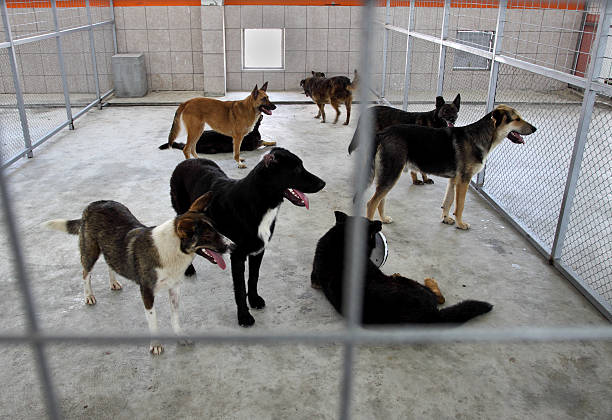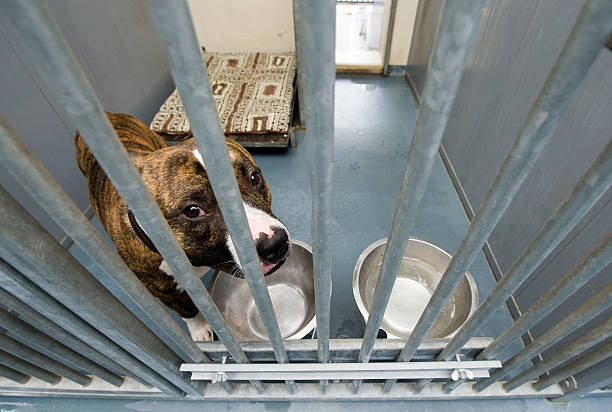Dogs can be held temporarily or permanently in kennels for a number of reasons, not necessarily for their own benefit. Although restrictive environments have been associated with poor welfare, priorities for research and change cannot be understood unless the various aspects of the kennel environment are appreciated separately. Continue Reading The Effect of the Kennel Environment on Canine Welfare: A Critical Review of Experimental Studies
Titulaer, M., Blackwell, E. J., Mendl, M., & Casey, R. A. (2013). Cross sectional study comparing behavioural, cognitive and physiological indicators of welfare between short and long term kennelled domestic dogs. Kennel Design Environment welfare Continue Reading Cross Sectional Study Comparing Behavioural, Cognitive and Physiological Indicators of Welfare Between Short and Long Term Kennelled Domestic Dogs
Stephen, J. and Ledger, R. A longitudinal evaluation of urinary cortisol in kenneled dogs, canis familiaris. environment kennel design welfare Continue Reading A Longitudinal Evaluation of Urinary Cortisol in Kenneled Dogs, Canis familiaris
Willen, R. M., Schiml, P. A., & Hennessy, M. B. Enrichment centered on human interaction moderates fear-induced aggression and increases positive expectancy in fearful shelter dogs Continue Reading Enrichment Centered On Human Interaction Moderates Fear-induced Aggression And Increases Positive Expectancy In Fearful Shelter Dogs
Coppola, C.L., Enns, R.M., and Grandin, T. Noise in the animal shelter environment: Building design and the effects of daily noise exposure. Environment noise kennel design welfare Continue Reading Noise in the Animal Shelter Environment: Building Design and the Effects of Daily Noise Exposure
Gorman, K. (2004). Minimum Mental Health Requirements for Shelters. Open paw – building lifelong positive relationships with pets. Retrieved March 6, 2022, from http://www.openpaw.org/about/minimum_health.html Continue Reading Minimum Mental Health Requirements for Shelters





